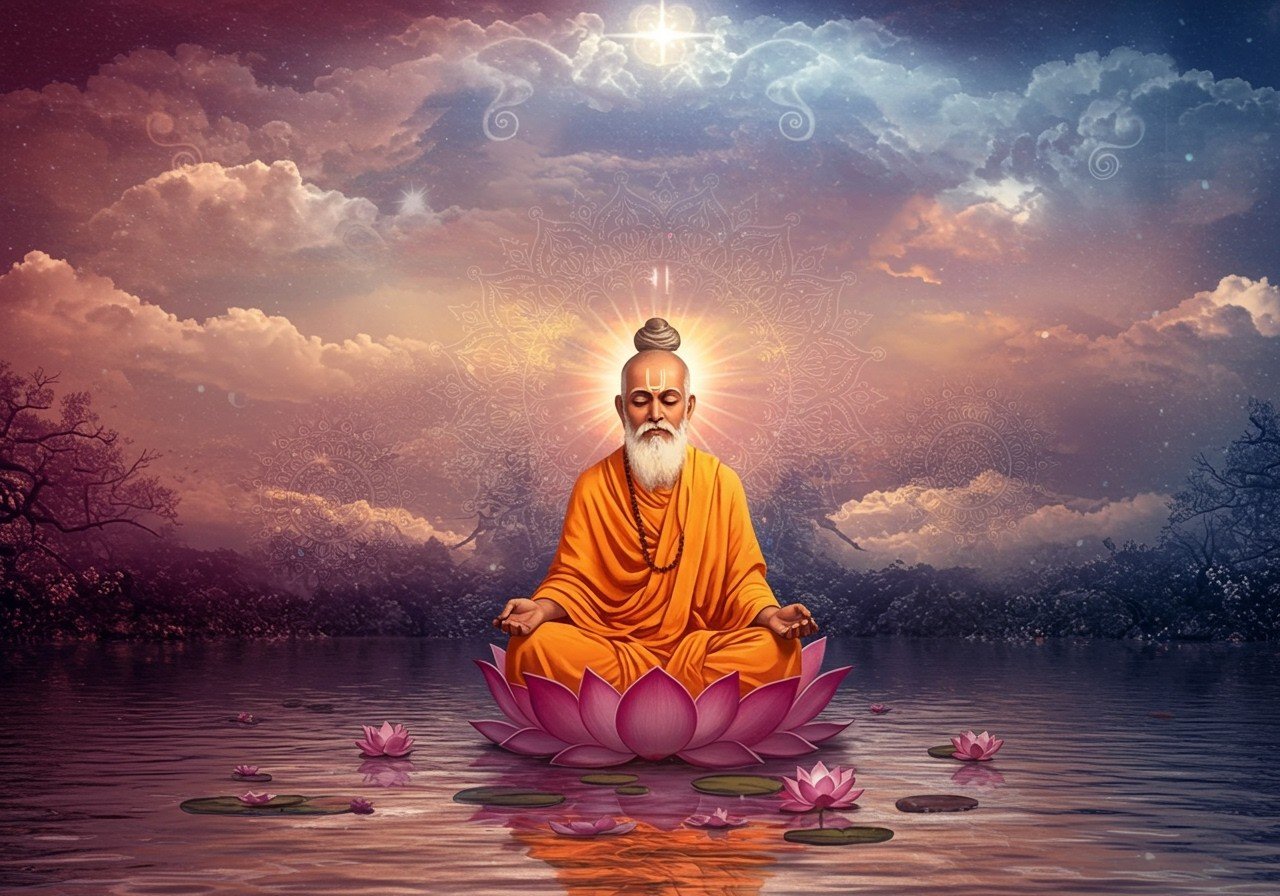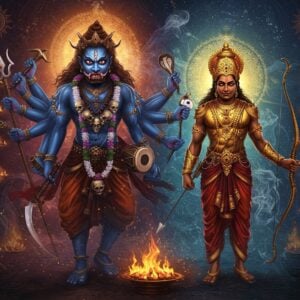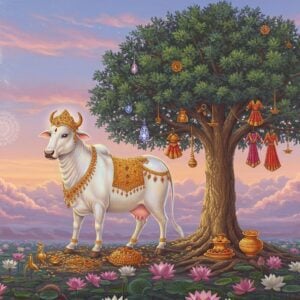
Namaste. Embark on a profound journey into the heart of Hindu philosophy, where ancient wisdom illuminates our modern traditions. Discover how the core tenets of Karma, Dharma, and Moksha infuse our daily practices and beliefs, transforming rituals into meaningful expressions of life. This exploration is crafted for culturally rooted Indians like you, who cherish tradition, value authenticity, and appreciate the convenience of online resources like ours.
Understanding Karma, Dharma, and Moksha: The Cornerstones of Hindu Thought
These three interconnected concepts form the bedrock of Hindu philosophy, providing a harmonious framework for life. Let’s explore each one:
- Karma: More than just “cause and effect,” Karma speaks to the intricate web of actions and consequences that shape our journey. It encourages mindful living and ethical decision-making, reminding us that every choice has ripples.
- Dharma: Dharma is your unique path of righteousness, encompassing moral duties and responsibilities based on your role in society, your age, and your individual capabilities. It emphasizes living with integrity and contributing to the collective good.
- Moksha: Often described as liberation, Moksha is the ultimate aspiration – freedom from the cycle of birth and rebirth. This profound concept guides spiritual practices and life choices, reminding us of the deeper purpose beyond our earthly existence.
Dive deeper into understanding Hindu Philosophy with our beginner’s guide.
Even in today’s fast-paced world, these principles resonate in our daily lives, from the ethical choices we make at work to the way we participate in our communities. They provide a compass for navigating the complexities of modern India.
Exploring Hindu Philosophy and Values in Everyday Life
Core Philosophical Concepts
Hindu philosophy is a rich tapestry of thought, woven with core concepts that guide our understanding of the world and our place within it.
- Dharma: This principle calls us to uphold moral laws, act righteously, and fulfill our responsibilities. Dharma is the cosmic order that sustains the universe, and we contribute to it through our actions, rituals, and way of living. The Vedas offer profound insights into this concept.
- Karma: Karma reminds us that our actions have consequences, shaping our present and future. This principle encourages mindful living, ethical decision-making, and a deep understanding of the interconnectedness of all things.
- Moksha: Moksha is the ultimate goal – liberation from the cycle of birth and rebirth. This aspiration motivates us to seek spiritual knowledge, live righteously, and strive for enlightenment.
- Atman and Brahman: These concepts explore the relationship between the individual self (Atman) and the ultimate reality (Brahman). They offer a profound understanding of our connection to the divine and to all beings. Learn more about connecting with your inner self through Hindu Philosophy.
Values and Ethics
Hindu values are deeply rooted in ethical principles that promote harmony and well-being.
- Truth, Right Conduct, Love, Peace, and Non-Violence (Ahimsa): These values are at the heart of Hindu ethics, guiding us towards compassionate and righteous living.
- Respect for Elders: Reverence for elders is a cornerstone of Hindu culture, strengthening family bonds and fostering intergenerational wisdom.
- Universal Kinship and Well-being (Vasudhaiva Kutumbakam): This beautiful concept embraces the entire world as one family, promoting compassion, empathy, and a deep sense of interconnectedness with all beings.
- Pluralism: Hinduism acknowledges the diversity of paths to truth, fostering tolerance, understanding, and peaceful coexistence among different faiths and beliefs.
Influence on Traditions and Practices
Hindu traditions are vibrant expressions of our values and beliefs.
- Worship and Rituals: Practices like bhakti (devotion), puja (worship), yajna (sacrificial rites), and dhyana (meditation) are integral to Hindu life, connecting us to the divine and strengthening our spiritual practice.
- Yoga and Meditation: These profound practices nurture physical, mental, and spiritual well-being, offering pathways to self-discovery and inner peace.
- Arts and Culture: From classical dance to music and storytelling, Hindu traditions are expressed through rich artistic forms that inspire and uplift.
- Social Norms: Our values are reflected in our social customs, from the traditional attire worn during festivals to the significance of wedding bangles and the Mangal Sutra. These customs symbolize our heritage and strengthen our cultural identity.
The Enduring Legacy of Hindu Thought (Sanatana Dharma)
Hindu philosophy is a vast and profound ocean of knowledge, encompassing various schools of thought like Vedanta and Yoga, and drawing wisdom from sacred texts like the Bhagavad Gita. It is a living tradition, also known as “Sanatana Dharma” (eternal dharma) or “Vaidika Dharma” (Vedic dharma), that continues to guide and inspire us. Explore the timeless leadership and virtues of Lord Rama.
How Poojn.in Supports Your Spiritual Journey
At Poojn.in, we understand the importance of authentic ritual items in connecting with your traditions and values. We offer a curated selection of high-quality products, making it convenient for you to honor your practices and deepen your spiritual understanding. Here’s how we can assist you:
- Authentic Products: We source genuine items for your rituals, ensuring that your practices are aligned with tradition and imbued with sacred significance. Browse our collection of traditional Pooja Thalis.
- Convenient Online Shopping: Find everything you need for your spiritual practice from the comfort of your home. Our online store makes it easy to explore and acquire authentic ritual items hassle-free. Enhance your Pooja space with a pure brass golden arch.
- Educational Resources: Our blog, Alochana, offers insightful articles and guides on Hindu philosophy, rituals, and traditions, helping you deepen your understanding and enrich your practice. Explore ancient culture beyond religious sites through our blog post on Siddhatek.
- Dedicated Customer Support: Our team is here to assist you with any questions. Call us at 03369029784 or connect with us on WhatsApp at 9476142738.
Embracing Tradition with Understanding
Hindu philosophy is a wellspring of wisdom, offering guidance and meaning for life’s journey. By understanding core concepts like Dharma, Karma, Moksha, Atman, and Brahman, we connect more deeply with the traditions that shape our identity and enrich our lives. Hindu values provide a moral compass, fostering harmony within ourselves and within our communities.
Through our rituals and practices, we honor our heritage and embrace the enduring teachings of Hindu philosophy. These traditions are not merely rituals; they are pathways to spiritual growth and self-realization. By integrating these timeless principles into our modern lives, we keep the flame of Sanatana Dharma burning brightly.
Embrace the power of Rudraksha with our authentic pendants.
Frequently Asked Questions about Hindu Philosophy and Traditions
What are the fundamental pillars of Hindu philosophy?
The foundation of Hindu philosophy rests on the interconnected concepts of Karma (action and consequence), Dharma (righteous conduct and duty), and Moksha (liberation). These principles guide our actions, responsibilities, and ultimate spiritual aspirations.
How does understanding Karma impact our daily lives?
Karma’s principle of cause and effect encourages thoughtful decision-making. By recognizing that our actions have consequences, we strive to live ethically and responsibly, considering the impact of our choices on ourselves and others.
What makes Dharma so important in Hindu tradition?
Dharma represents duty, righteousness, and ethical conduct. It provides a framework for living with integrity and fulfilling our responsibilities to family, society, and ourselves. Dharma maintains social order and guides us towards a life of purpose.
Could you explain Moksha and its significance?
Moksha is liberation from the cycle of birth and rebirth, the ultimate spiritual goal in Hinduism. It represents the attainment of enlightenment, freedom from suffering, and union with the divine. Moksha inspires us to pursue spiritual growth and self-realization.
Why is authenticity so vital in spiritual practices?
Authenticity ensures that our practices remain rooted in tradition and aligned with the true spirit of our heritage. It allows us to connect deeply with the wisdom of our ancestors and experience the full power of our spiritual practices. Bring authenticity into your home with our Om wall hangings.


